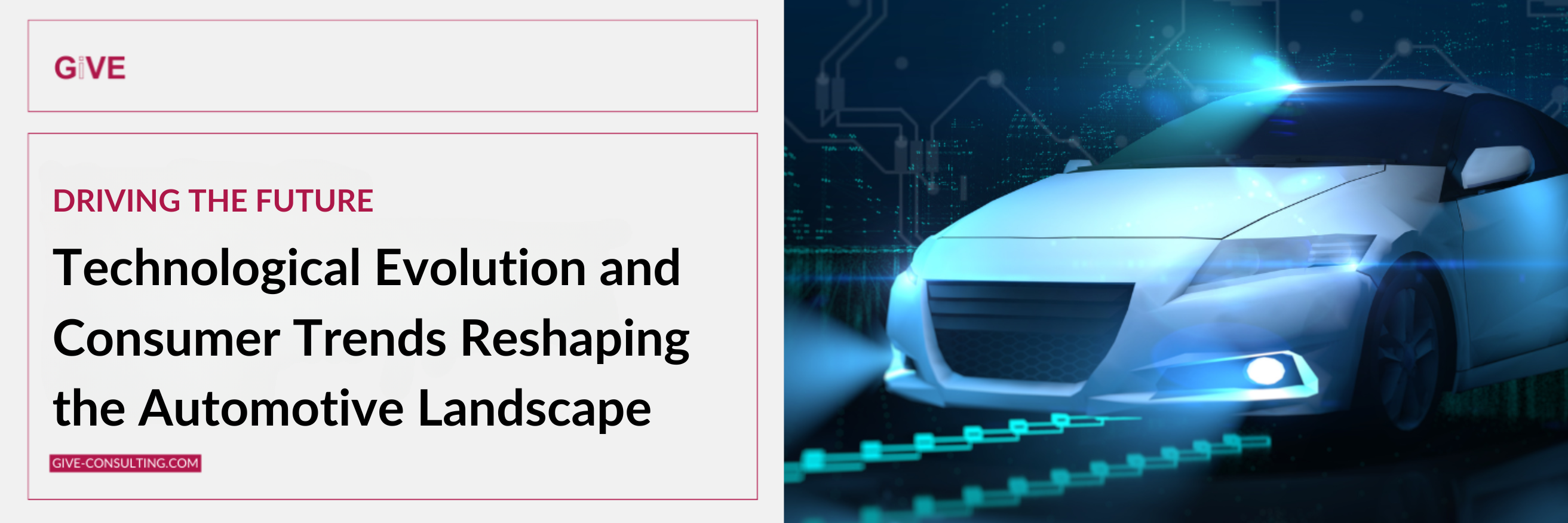
Photo credit: PhotoMIX-Company für Pixabay (via Canva pro)
Industry trends and insights into the automotive industry
The automotive industry is undergoing change. The transformation is currently strongly characterised by technological advances and changing customer requirements. In this blog post, we therefore take a closer look at some of the most important trends in the industry.
Connected vehicles and the Internet of Things (IoT): focus on security and data protection
With the advent of the Internet of Things (IoT), vehicles are becoming increasingly connected, enabling a wide range of new functions and services. However, these connected vehicles also pose enormous challenges in terms of security and data protection. The automotive industry must therefore actively address these difficulties in order to maintain consumer trust in the long term.
This is because increasing connectivity leads to a considerable amount of collected and processed data, including information on driving behaviour, location and engine performance - and possibly even biometric data of the occupants. Data protection and data security are therefore of crucial importance.
For this reason, the German Association of the Automotive Industry (VDA) has defined three clear principles for data protection in connection with autonomous and connected vehicles:
- Transparency
- Self-determination
- Data security
Ideally, vehicle manufacturers should already incorporate data protection measures into product development and regularly adapt them to the current state of the art.
Another industry trend in the automotive industry: sharing instead of owning
The way we get around is changing rapidly. New mobility services such as car sharing, ridesharing and so-called micromobility with e-scooters or other small vehicles are now flexible and cost-effective alternatives to traditional car ownership.
These services could help to reduce congestion, minimise the environmental impact of transport and improve access to mobility for people who do not own a vehicle.
Car sharing and ridesharing in particular have the potential to reduce the number of vehicles on the roads while at the same time increasing the mobility of individuals. However, there are also concerns that these services could increase the volume of traffic if they are not properly thought through.
Autonomous driving and artificial intelligence
Autonomous driving is currently an important trend in the automotive industry. The use of artificial intelligence (AI) enables vehicles to drive autonomously on the roads, which in principle has the potential to increase road safety and make traffic flows more efficient. However, there are still many challenges to overcome, including technical hurdles, regulatory issues and consumer acceptance. The greatest difficulty is also the question of ethically justifiable and safe basic rules for autonomous driving when it comes to accidents and assessing risks.
Change in the automotive trade: digital showrooms
The car trade is also currently undergoing a transformation, as more and more consumers are buying their vehicles online. However, this often requires more than just photos and descriptions. Digital showrooms and online sales platforms allow consumers to explore and purchase vehicles from the comfort of their own home. This trend is forcing traditional car dealerships to rethink their business models and focus on omnichannel strategies in order to offer consumers added value.
Further trends in the automotive sector
The automotive industry is currently undergoing profound change. There are therefore many trends that could shape the industry in the coming years:
- We will probably see completely new mobility concepts with which the industry responds to the changing needs of consumers.
- The advancing digitalisation, which ranges from digital showrooms to the integration of AI and machine learning in vehicles, will also shape the industry.
- With the increasing complexity of vehicle production, efficient supply chain management is also becoming ever more important.
- Mergers and acquisitions can help companies to pool resources, strengthen their market position and acquire new technologies.
- In addition to electromobility, the development of hydrogen drives could play an important role in the decarbonisation of the automotive industry - especially for large vehicles.
One thing is clear: the automotive industry is facing exciting times, and it will be fascinating to see how these trends develop in the coming years.




